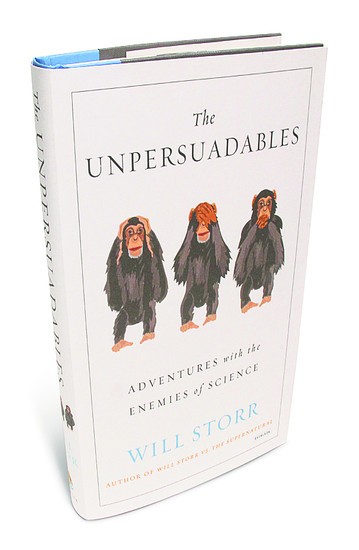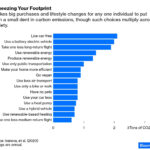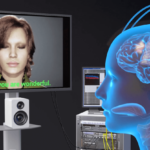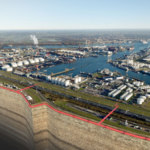The quote in today’s headline comes from Will Storr’s compelling new book, The Unpersuadables. I’ve included a link to the Wall Street Journal book review if you are inclined to give it a read. It is an unsettling book in so many ways as it explores how our brains perceive the world around us and fool all of us in the process by reinforcing our confirmation biases.
The statement “you can’t change an identity with facts” sums up the human problem in the face of a rising number of global challenges, where we are armed with facts but constrained by our identities when dealing with these crises using our very personal world views. The challenge for all of us is to break away from confirmation bias so that we collectively can work on solutions that address existential challenges.
For example, climate change. Identity politics and ideologies have created a divided camp. Evidence to support the hypothesis that our world is warming because of human activity is significant. If I stated it is overwhelmingly significant then you might accuse me of a confirmation bias, that I was reading into the data what I already conceived as the truth although others would interpret the “facts” differently. Their hypothesis might be that climate change has always been around (which of course is true) and that what is happening currently is just natural variability. They might look for an alternative scientific explanation such as changes to the amount of solar energy Earth receives from the Sun. Some may propose a hypothesis that the Earth is entering a new Ice Age and seek “facts” to support that particular perspective. In every case, the conclusion each of these hypotheses creators have in common is confirmation bias.
So where does “identity” come into play? Think about the current political malaise afflicting the United States. From an outsider’s perspective (I’m Canadian), America is a house divided by politics, race and history, geography, and socioeconomic status and the work Americans do. Those who identify as Trump Republicans have a very different view of “facts” than those who identify as Democrats. The same goes for race, with slavery very much an influencing and historic fact. Geography changes perspective: think urban versus suburban or city versus small town and farms. And socioeconomic status which is often determined by work and income also contributes to perspectives and identity. It makes some of us anti-vaxxers and anti-abortion. It makes others pro or anti-gun. It is influenced by the way we are rooted in identity and how our minds interpret facts and confabulate or alter them to conform to who and what we are.
America isn’t unique. The same human challenge is true here in Canada as well as elsewhere on this planet. As powerful a tool as our brain is, we are slaves to how it is moulded and shaped through a complex of human and non-human interactions, education, work, and culture.
The Canadian experience comes with an abundance of flavours: Quebecois, First Nations, Inuit, Metis, older generations of non-French Europeans, and new multiracial and multicultural immigrants. History, geography, religion, race and politics all define our identities and influence how our brains perceive facts as we encounter them.
When I decided in university to study the history of Islam I was asked by Jewish friends “why?” My response was “to understand another person you need to walk a mile in his or her shoes.” I had entered university after the summer of the Six-Day War fought in 1967 by Israel and its Arab-state neighbours. I had a strong identity association with my Jewish heritage and the State of Israel. When I began to study Islam my goal was to reconsider my perceptions and see the facts of history without a singular confirmation bias. I must admit it is a very hard thing to do when the first two decades of your life identify with a mix of a secular national perspective and religious and cultural roots. Like every other human on this planet, my brain arrived at a point in time as I began my studies with a confirmation bias anchor attached. Today, my perceptions are altered and my ability to see facts without as much a confirmation bias as before has made me more open and receptive to exploring new solutions to what appear to be intractable problems.
From my walking in other shoes I am convinced that this is one way for humanity to solve the big challenges we collectively face: the current and future pandemics, mitigating and adapting to climate change, ending the socioeconomic disparities between the Global North and Global South, eliminating endemic racism based on skin colour and culture, and addressing the divisive and toxic outcomes from identity politics and ideologies that feed hatred around the world and move us ever closer to the next global war.
And for those of you who are younger who read these words, you have an advantage. Your identity is still being shaped. You can break away from the straitjacket that our minds’ world views create and construct an understanding of facts and actions taken not shaped by confirmation biases.
















